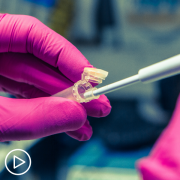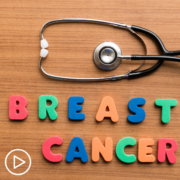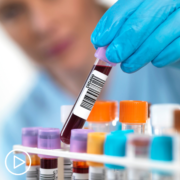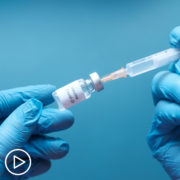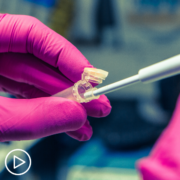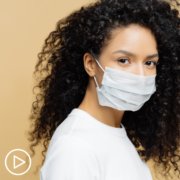Is the COVID-19 Vaccine Safe and Effective for Breast Cancer Patients?
Is the COVID-19 Vaccine Safe and Effective for Breast Cancer Patients? from Patient Empowerment Network on Vimeo.
What do breast cancer patients need to know about COVID-19 vaccines? Dr. Jane Lowe Meisel offers her advice and perspective about COVID vaccines and precautions for breast cancer patient safety.
Jane Lowe Meisel, MD is an Associate Professor of Hematology and Medical Oncology at Winship Cancer Institute at Emory University. Learn more about Dr. Meisel here.
[Editor’s Note: On August 23, 2021, the U.S. Food and Drug Administration (FDA) approved the Pfizer-BioNTech COVID-19 Vaccine for individuals 16 years of age and older.]
See More From INSIST! Metastatic Breast Cancer
Related Resources:
Transcript:
Katherine:
Let’s shift gears for a moment and talk about another time sensitive topic, COVID. Now that vaccines are available, are they safe and effective for breast cancer patients?
Dr. Meisel:
Yeah, I think the short answer to that is yes, absolutely. I’m encouraging all my patients, no matter what their treatment status is to go ahead and get vaccinated. And with the delta variant being more transmissible, I think it’s all the more time, even if you haven’t considered vaccination up until now, to really go ahead and strongly consider getting a vaccine.
I think some of the hesitations that some of the people have talked to me about is that there were not a lot of active cancer patients, if any, included in the initial trials. And whereas that is true, it’s still the case that now, so many cancer patients have been vaccinated. We haven’t really heard about adverse effects in vaccination being something that’s higher in patients who have cancer who are on active treatment. I think the one challenge is, if you have a compromised immune system because of cancer treatment, there’s the possibility that you might not mount the same immune response to the vaccine as someone who doesn’t have cancer or isn’t getting active treatment.
So, while I would say yes, definitely get vaccinated, I would also at the same time encourage caution in saying, because you might not mount the same, 95 percent or whatever immune response, it may still be a good idea to wear a mask when you go to the grocery store, taking those precautions because no one really knows what’s coming and it’s better to be safe than sorry. But I think we will get a lot of information as the months go on about, do we need boosters? Who might need boosters more soon than others and some of that will get clarified for us, but my short answer would be yes, vaccines for all.
Katherine:
Excellent, that’s very helpful.
Dr. Meisel:
Thank you.

